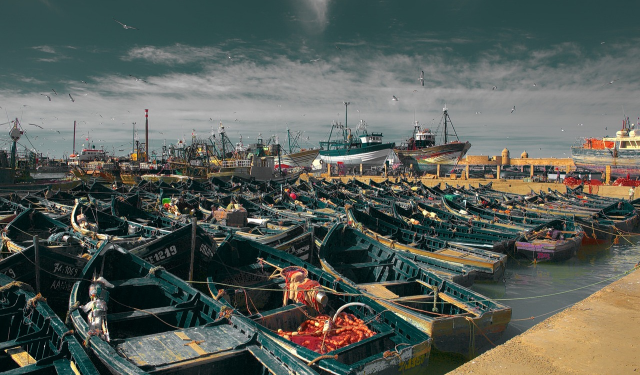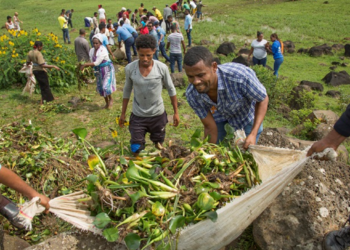Blue economy and green energy, a promising future for sustainability in Morocco – Morocco is therefore determined to exploit the potential of green energy and the blue economy to accelerate the country’s economic and social development. With the support of international financial institutions and the National Blue Economy Programme, the Kingdom is well placed to become an African leader in these fields. Projections are optimistic and Morocco can expect to become a major player in the blue economy and green energy in the coming years.
The automotive sector has become an essential pillar of the Moroccan economy, but the blue economy and renewable energy sources are also becoming opportunities to exploit.
According to the daily Les Inspirations Eco of 18 May, the International Renewable Energy Agency has placed Morocco among the top three African countries in terms of clean renewable energy production. With more than 3,700 megawatts of installed renewable power, the Kingdom is close to 40% of the country’s total power and electricity production.
According to the report, “The Blue Economy: Pillar of a New Development Model for Morocco“, the blue economy appears as a new opportunity that fits perfectly with the spirit of sustainability and resilience advocated by the United Nations Agenda for Sustainable Development. The blue economy thus contributes to the achievement of the objectives of the 2030 Agenda and in particular of the MDG14: “Conserve and sustainably use the oceans, seas and marine resources for sustainable development”.
In addition, Morocco can take advantage of its geographical position and its 3,500 km of coastline to develop a marine industry. Despite the absence of a national flag, various activities with very high added value are being developed, including shipbuilding and ship repair.
The aim of this EESC report is to present a strategic reflection on the Moroccan maritime capital and to analyse its assets, constraints, opportunities and current threats, before proposing guidelines and operational recommendations for the implementation of a National Strategy for the Blue Economy (SNEB).

To capitalise on these opportunities, the government has set up the Inter-ministerial Commission for the Development of the Blue Economy, supported by the World Bank and the Ministry of Budget, for a total amount of US$355 million. In addition, the National Blue Economy Programme has been valued at nearly 20 billion dirhams. The potential of the Moroccan blue economy is considerable and it is time to capitalise on it to make this industry a new engine of growth.
The aim of this EESC report is to present a strategic reflection on the Moroccan maritime capital and to analyse its assets, constraints, opportunities and current threats, before proposing guidelines and operational recommendations for the implementation of the SNEB.
The challenge of a new model for a resilient Moroccan blue economy calls for the restructuring, albeit to varying degrees, of the maritime sectors with the aim of achieving triple economic, social and environmental performance. These activities must move towards greater sustainability, inclusion, respect for the environment and ecosystems. Thus, an analysis of the value chain of all the sectors associated with the sea and the coast has been carried out to identify the models that will enable local value to be captured in a more optimal way.
Blue economy and green energy, a promising future for sustainability in Morocco









